Our Developing Anti-racist Approaches Training
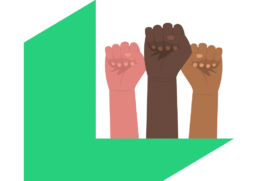
Our Developing Anti-racist Approaches Training
Our Developing Anti-racist Approaches Training
Our Training Offer
We support teachers, leaders and student support professionals in schools and trusts, in developing their consciousness, confidence and competence in creating educational spaces which are anti-racist.
We can deliver face to face and virtually, for twilights, INSETs and conferences.
We will create a safe space for you to explore how to reimagine our educational spaces as more diverse anti-racist and equitable.
- Sharing the lived educational experience of those racialised as Black and Brown.
- Becoming conscious of the additional barriers people racialised as such may face in schools.
- Becoming conscious of the difference between being non-racist and anti-racist.
- Building confidence in understanding the need for an anti-racist learning environment, curriculum and educators.
- Building confidence and competence in knowing how to handle racist incidents at school.
It was very interesting, highly engaging and definitely food for thought.
Karen Meenagh, Assistant Head / SENCO
She was an engaging speaker who got to the core of key terminology and the importance of DEI for every single individual. Feedback from across all sections of the schools showed it had been eye-opening and thought-provoking. This formed a crucial part of our ongoing work of building an inclusive community with a strong sense of belonging. She is a passionate and charismatic speaker who we would love to invite back.
Jo Baker, Assistant Principal, Branston Community Academy
Our Growing Trans and Non-Binary Awareness Training
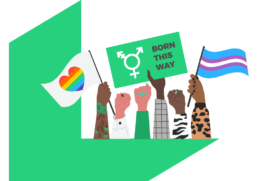
Our Growing Trans and Non-Binary Awareness Training
Our Growing Trans and Non-Binary Awareness Training
Our Training Offer
We support teachers, leaders and student support professionals in schools and trusts, in developing their consciousness, confidence and competence in furthering LGBT+ inclusion in your educational space with a greater understanding of gender diversity.
We can deliver face to face and virtually, for twilights, INSETs and conferences.
We will create a safe space for you to explore how to reimagine our educational spaces as more diverse, equitable, and inclusive for trans, non-binary, and gender diverse people.
- Sharing the lived educational experience of LGBT+ gender diverse people.
- Becoming conscious of the additional barriers gender diverse young people may face in schools.
- Becoming conscious of the historical and current statutory guidance and legislation in relation to supporting gender diverse people.
- Building confidence through exploring the developing language around gender identity and expression.
- Exploring the distinction between sex, gender identity, and gender expression.
- Building confidence and competence in supporting trans young people as they come out in an educational space.
- Growing confidence and competence in challenging transphobic language.
- Developing competence in reimagining our educational spaces, and making them more diverse, equitable, and inclusive of gender diverse people.
We regularly use DiverseEd to upskill and empower out trainees. the sessions are informative, well planned and really useful for our trainees.
Jane Adamson, Programme Leader
Our Making Educational Spaces LGBT+ Inclusive Training
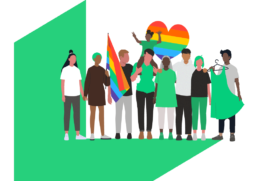
Our Making Educational Spaces LGBT+ Inclusive Training
Our Making Educational Spaces LGBT+ Inclusive Training
Our Training Offer
We support teachers, leaders and student support professionals in schools and trusts, in developing their consciousness, confidence and competence in creating educational spaces which are inclusive for LGBT+ people.
We can deliver face to face and virtually, for twilights, INSETs and conferences.
We will create a safe space for you to explore how to reimagine our educational spaces as more diverse, equitable, and inclusive of LGBT+ lives.
- Sharing the lived educational experience of LGBT+ people.
- Becoming conscious of the additional barriers LGBT+ young people may face in schools.
- Becoming conscious of the historical and current statutory guidance and legislation in relation to LGBT+ inclusion.
- Building confidence through a common inclusive language in relation to LGBT+ identities.
- Building confidence and competence in knowing what to say when a young person comes out.
- Building confidence and competence in challenging homophobic, biphobic, and transphobic language in school.
- Developing competence in reimagining our educational spaces, and making them more diverse, equitable, and inclusive of LGBT+ lives.
DEI training with Diverse Educators is edifying, enlightening, and enjoyable and ultimately uplifting, on what can be a tricky topic to understand and articulate.
Jude Owens, PA to Executive TSH Team
Expertly delivered session, highlighting key areas of consideration in the protected characteristics across the whole staff. Thank you!
Pamela Nikiteas, Head of PSHE, Bede’s School
Inclusive Workplaces Toolkit
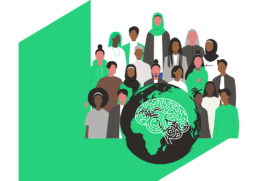
Inclusive Workplaces Toolkit
Inclusive Workplaces Toolkit
Toolkit collated by Hannah Wilson
What Is Workplace Inclusion?
Workplace inclusion is when people feel valued and accepted in their team and in the wider organisation, without having to conform. Inclusive organisations support employees, regardless of their background or circumstance, to thrive at work.
Inclusion is the culture in which the mix of people can come to work, feel comfortable and confident to be themselves, and work in a way that suits them and delivers your business or service needs. Inclusion will ensure that everyone feels valued and importantly, adds value.
What Is an Inclusive Workplace?
An inclusive workplace is a workplace where all employees feel respected and included. All employees in an inclusive workplace receive equal opportunities to company resources. Inclusive workplaces emphasise the importance of not just hiring diverse employees but embracing and celebrating their traits and qualities.
Everyone should work to make all team members feel welcomed and encouraged to express their individuality. This helps everyone feel more accepted, comfortable and excited to come to work.
Why Is an Inclusive Workplace Important?
An inclusive workplace is important because it builds a positive atmosphere that all employees will enjoy being a part of. This helps boost employee morale and creates a vibrant company culture, causing you to have a strong sense of belonging at work including feeling accepted by all of your coworkers.
Diverse and inclusive workplaces can also make your workplace more innovative and productive, as everyone will feel like their ideas matter and are well-heard, no matter their culture, gender or ethnicity. This also typically builds confidence and self-esteem in employees to voice their opinions and produce impressive work for the company.
What Are the Benefits of an Inclusive Workplace?
Positive and inclusive work cultures create a sense of identity for employees, foster a sense of commitment, and guide or shape the attitudes and behaviours of all employees. An inclusive workplace is more likely to attract and retain a diverse workforce, which has the potential to outperform competitors. An inclusive workplace benefits all employees.
The Diverse Educators’ Inclusive Workplaces Toolkit
- Have you set/ agreed inclusivity goals for your team?
- How have you shown others what inclusivity means?
- Have you created space for an inclusion council?
- How do you celebrate and embrace your team members and their differences?
- Have you made your meetings inclusive and engaging?
- How do you express your appreciation for team members?
- What actions have you taken to ensure that everyone feels like they belong?
- Have you reviewed your policies to ensure that you identify and remove barriers impacting your vision for inclusion?
Articles
Books
Nash, Kate – Positively Purple: Build an Inclusive World Where People with Disabilities Can Flourish
Segura, Antonia – Your Guide To Creating An Inclusive Workplace: Cultivating Success Through Diversity
Shane, Kryss – Creating an LGBT+ Inclusive Workplace: The Practical Resource Guide for Business Leaders
Podcasts
Resources
TED Talks
Videos
Progressive Masculinity
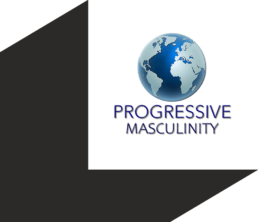
Progressive Masculinity
We provide practical, safe and non-judgemental workshops KS2-4 which explore what it means to ‘be a man’ in today’s world and to end the damaging ‘performance’ of masculinity many feel pressured to live. Traditional stereotypes of aggression, dominance, misogyny etc are challenged as we reconstruct a healthier and more open-minded understanding of the potential of our gender. The Pupil Workshop Program is comprised of six one-hour sessions, each focussing on a different aspect of masculinity: communication and emotional literacy, anger-management and emotional control, attitudes towards women, role models and aspirations etc. Impact data has shown improvements in attendance and a reduction in sanctions and exclusions following the program. Pupil feedback has been overwhelmingly positive, with comments like “These sessions made me feel like I don’t have to be pretend to be someone else. Someone I don’t actually like being anyway.”
Educate Against Islamophobia

Educate Against Islamophobia (EAI)
Educate Against Islamophobia (EAI) is a not-for-profit organisation committed to combating Islamophobia through educational means.
At Educate Against Islamophobia, we believe in the power of education. This is because internationally, education is widely recognised as a fundamental tool through which society can combat racism and its varying forms. Moreover, intolerance and discrimination against Muslims often stems from misinformation or a lack of knowledge and understanding about Islam and its adherents.
Through anti-Islamophobia education, EAI has the potential to eliminate prejudice as well as fostering mutual respect and understanding across our society. EAI is therefore passionate to capitalise on this tool to address what has been recognised as one of the most prevalent forms of prejudice and racism within our society, namely Islamophobia.
Socially Just Physical Education & Youth Sport
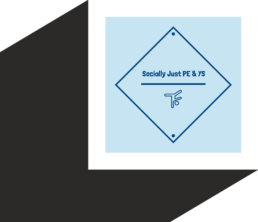
Socially Just Physical Education & Youth Sport
An organisation dedicated to creating spaces where young people can flourish in physical education and youth sport. Young people have the right to experience educative, empowering, authentic movement spaces that centralise voice, choice, belonging and acceptance. Founded by Dr Shrehan Lynch.
SyncD
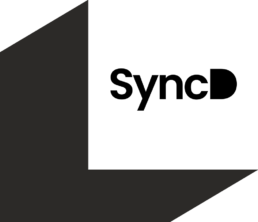
SyncD
Alicia Richardson leads our diversity, equity and inclusion practice. She has 5 years of diverse hiring experience, and 2 years of workshop facilitation and public speaking experience.
Alicia has worked across various industries, including tech, creative, marketing, and fashion. Companies and clients she has worked with included Spotify, Depop, Analog Folk, Media Cause, House 337 and Looping Group.
Alicia has experience building her own communities and is the Founder of her own diverse job board, Black Create Connect. Alicia has created and executed diverse hiring strategies by conducting detailed audits, research and analysing data. This has resulted in her impacting who companies attract, and how they successfully retain diverse talent.
Our Activating Inclusive Allyship Training
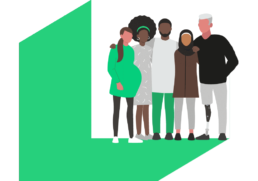
Our Activating Inclusive Allyship Training
Our Activating Inclusive Allyship Training
Our Training Offer
We support all stakeholders in schools and trusts, in developing their consciousness, confidence and competence in standing up, speaking out and showing solidarity for people who hold different identities to their own.
We can deliver face to face and virtually, for twilights, INSETs and conferences.
We will create a safe space for you to explore your identity, power and privilege. We will create a brave space for you to consider how you can leverage your privilege and expand your sphere of influence.
- Reflecting on the journey of an ally
- Unpacking and navigating our privilege
- Exploring our willingness to be vulnerable
- Sharing how we can learn from making mistakes
- Considering how we create and hold safe spaces
- Navigating our strong emotions
- Challenging language, behaviours and practices that are not inclusive
The most engaging after school training session I have had in a long time. Impressively thoughtful, relevant to our environment in the Middle East, respectful of all staff on the training.
Teacher, Doha College
The CPD was simply perfect for what we needed. It provided a safe yet supportive space to discuss our experience, knowledge and to learn. I couldn’t recommend Diverse Educators more.
Teacher, International School
As a lead mentor for Prestolee SCITT and the lead practitioner for diversity and inclusion within the SCITT, my time spent in training with Hannah and the team has been invaluable. The team have delivered training to our trainees and also to my colleagues, through a series of DiverseEd training and also at the Prestolee Multi Academy Trust’s annual conference. The knowledge and passion of each event attended has been evident, along with outstanding knowledge of underrepresented groups. The team confidently share resources that are available, so further reading and training can take place outside of training sessions. The message is clear from all trainers, that diversity, equity and inclusion needs to be high on the agenda to minimise the stigmas, stereotypes and abuse within our society. The training allows for reflection. “You can never apologise for what you didn’t know.” This is a quote I will remember. It is okay to ask difficult questions and be curious. Speaking about the issues are better than silence. This is something I will take away from all sessions. Thank you to all in the DiverseEd family.
Ashley Jones, Prestolee SCITT
Our Taking Trauma-Informed Approaches to DEI Training
Our Taking Trauma-Informed Approaches to DEI Training
Our Taking Trauma-Informed Approaches to DEI Training
Our Training Offer
We support teachers, leaders and student support professionals in schools and trusts, in developing their consciousness, confidence and competence in deploying trauma-informed approaches.
We can deliver face to face and virtually, for twilights, INSETs and conferences.
We will create a safe space for you to explore how to create safe and stable environments for our young people to empower them to have agency.
- Developing an awareness of trauma responses
- Becoming conscious of the factors that cause trauma
- Expanding our understanding of how trauma relates to DEI
- Reflecting on the impact that prejudice and discrimination can have on an individual
- Discussing how we respond to behaviours impacted by trauma as individuals and institutions
- Exploring trauma-informed principles and practices
We have participated in two training sessions with Diverse Educators now and all staff, governors and other stakeholders, such as therapists have given very positive feedback. Both facilitators were knowledgeable, dynamic and able to provoke highly stimulating discussion. They were able to reach all roles within the school and helped us to have some happily uncomfortable conversations. We have a clear way forward in terms of continuing to review our provision through the lens of DEI with the support of this company.
Francesca Smith, Headteacher

